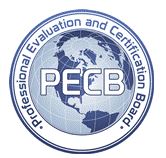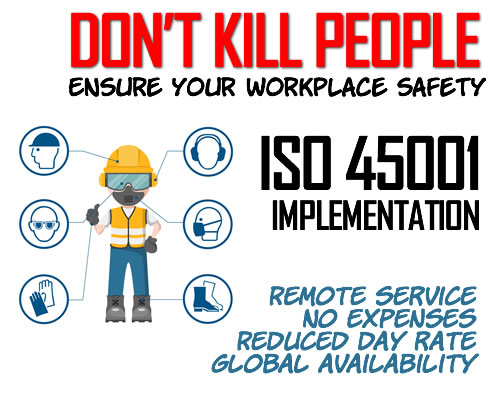With the inclusion of risk in ISO 9001:2015 and the growing awareness of the (relatively new) risk management standard ISO 31000, the “certified risk manager” training classes are popping up like overnight mushrooms. Much like the effect eating said mushrooms would have, the classes are a confusing swirl of psychedelic mumbo-jumbo, providing not much in the way of professional advancement, except for the charlatans selling them.
Obviously this includes overnight self-promoters like Alex Dali’s G31000 group, and Greg Hutchins’ CERM Academy. Through obsessive, unending spam, LinkedIn posts and salesy blogs, these guys are pushing their dubious wares on an unsuspecting public. But the problem extends to even the more mainstream, “accepted” risk institutes, which also offer their own flavors of unaccredited risk management certification.
Meanwhile, a group called the Professional education Certification Board (PECB) is showing the world how it’s done. It’s ISO 31000 Risk Manager course is accredited to ISO 17024 by ANSI, and yes, I verified it. It’s legit. In addition, PECB is ISO 9001 certified by accredited registrar SGS.
While Alex “Eyebrow Model” Dali knows how to type the words “ISO 17024” on his website, our favorite Frenchman doesn’t know what that actually means because his organization — like CERM Academy — is not actually accredited. In Dali’s case, his ignorance is on full display where he claims his group’s exams are graded in accordance with ISO 17024, but that standard doesn’t actually have any requirements related to grading. The dupes buying his certified classes probably think his course is accredited, when it’s not even close. In fact, making the claim is likely deceptive advertising, something that will be tested shortly, when the G31000 group undergoes an investigation by the US Federal Trade Commission.
PECB, meanwhile, clearly explains its full certification process and fee structure, proving its compliance to ISO 17024. It links to the ANSI page that includes its official listing, and the full scope of its accreditation. In all, PECB offers 31 accredited courses, and clearly lists which of its offerings are within that scope, and which are not. There is no ambiguity, no wink-wink sales pitches, no confusion. You know exactly what you are buying. In the case of its ISO 31000 Risk Manager course, you know it has the full international recognition of ANSI, which itself is an IAF signatory.
G31000 and CERM Academy? Not so much.
Because Alex Dali is an overflowing font of ridiculousness — and because CERM Academy doesn’t even list their pricing (you have to ask) — let’s look at the costs associated with obtaining and maintaining an unaccredited G31000 “certified risk manager” credential, as compared to the accredited (and therefore policed) PECB certificate.
PECB’s risk manager offering is a 2-day course that requires some preliminary experience for attendees. This is in keeping with ISO 17024 requirements, which do not allow a trainer to merely give a certificate based on the exam, but also to consider defined professional qualification criteria. The course costs about $1,000, depending on the trainer and venue.
To maintain a PECB certification, one must obtain 90 Continuing Professional Development credits (issued by anyone, not merely PECB), pay an annual fee of $100, which only triggers in 2016 (it’s free until then.) This fee structure is in keeping with normal interpretations of ISO 17024. The overall three year cost, then, is about $1,300.
G3100, meanwhile, has no minimum requirements of its attendees, and will issue its cert to anyone that passes it’s exams, in violation of ISO 17024. It also markets its exams as easy, boasting a 80% pass rate, and pushing the idea that it strives to help attendees pass the exam, rather than objectively assess them. Another violation of 17024.
The initial exam costs $2700, with an additional (undisclosed) exam fee to become a certified “trainer.” Then, to maintain G31000 trainer certification is insanely expensive. Trainers are then expected to market and conduct at least two G31000-branded classes per year, without the financial help or investment of the G31000 group, but for which they then presumably pay a licensing fee back to the G31000. The group rules require that the class be monitored by a G31000 principal, who is at this time Mr. Dali himself. The trainer must pay the “travel and lodging expenses plus a per-diem rate for their time” for Mr. Dali, who (according to reports) flies first class international from France. In order to maintain the trainer certification after the first year, the trainer must continue to pay a mandatory G31000 membership fee of $298 per year, plus attend one G31000 conference every two years for an entry fee of between $1,300 – $3,900, plus travel. The three-year investment can easily — easily — top $15,000, all to maintain an unaccredited certification that is not recognized on any international stage.
But since any money spent other than expenses flows back to G31000 and personally to Alex Dali, his “non profit” turns quite a profit. None of this would be acceptable under a proper, ANSI accredited scheme. But like all good certificate mill operators, this doesn’t stop Dali from name-dropping “ISO 17024” anyway.
And, as we reported the other day, if a G31000 trainer wants to speak at the conference, they have to pay Dali again — as much as $10,000 for a keynote speaker slot, rather than being paid, the way that everyone else on the planet does it.
So here are the questions for Alex Dali, Greg Hutchins and the rest: why can’t you get accredited? What’s stopping you? Certainly the money is flowing upwards, so there’s cash available. Is it the cost, or the potential to have your programs independently verified and continually policed? Or that accreditation would shut off most of those dubious cash flows as unethical, rife with conflicts of interest and potentially illegal?
$1,300 for an accredited, recognized training certificate from PECP, or $10,000 for an unrecognized, unaccredited certificate mill cert… you decide.
(Disclosure: Oxebridge has no relationship with PECB whatsoever. This is not an endorsement.)
Christopher Paris is the founder and VP Operations of Oxebridge. He has over 35 years’ experience implementing ISO 9001 and AS9100 systems, and helps establish certification and accreditation bodies with the ISO 17000 series. He is a vocal advocate for the development and use of standards from the point of view of actual users. He is the writer and artist of THE AUDITOR comic strip, and is currently writing the DR. CUBA pulp novel series. Visit www.drcuba.world









